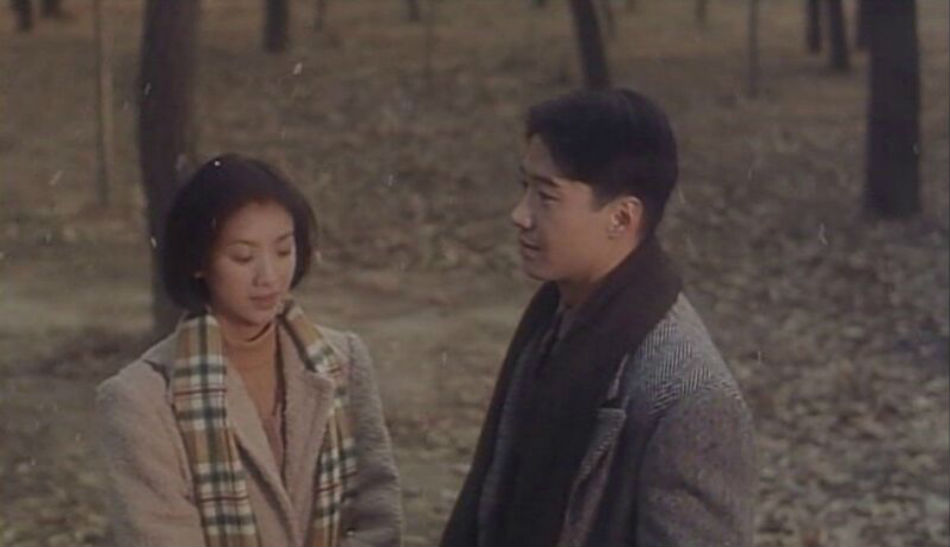[HONG KONG]
Mercury Cinema, Thu 1 Oct
This is a frustrating story of true love thwarted by meddling extended family members. Directed by Hong Kong’s Ann Hui, it is set in Shanghai in the 1930s and shows a society obsessed with family and having children and where the role of women was largely constrained within a domestic framework. Though it is a tale of the Chinese middle classes the whole tenor and mood of this film is quite oppressive. There is no poverty in terms of money and there being enough food on the table, but there is a poverty of a different kind – the lack of available choices for young people and the pressure to conform at the expense of the needs of the individual is stifling.
But this stifling oppression can only cast its net so far. Shanghai at the time was famous for its cabaret and dance scene and the role of ‘ballroom hostesses’ – women who could be paid for sex – flourished. The intersection of the Manzhen family with this racier side of Shanghai life was to have a devastating impact on the lives of the film’s central characters.
Shijun (Leon Lai) falls instantly in love with Gu Manzhen (Jaclyn Wu) the moment he sees her. Smitten and nervous he eventually makes it clear to Manzhen that he loves her and she responds like a good Chinese girl should. She agrees to marry him, though there are more interesting and exciting suitors – a fact that her whole family recognises and she also senses. Jaclyn Wu is delightful as the pretty and carefree young woman, and manages to convey some joie de vivre amid the cold narrow lanes of the neighbourhood and the dark wood-panelled interiors of the family home. Shijun on the other hand is really just a sweet and dedicated non-event of a man.
But neither of them deserve the fate that awaits them. Circumstance and deceit has them lost to each other and kept apart for Eighteen Springs. Their accidental rediscovery of each other is a powerful and touching moment and, like most of the film, is shot with restrained discretion.
The story is depressing; the movie is not. It is a fascinating, intimate glimpse of the time, and full of minute detail – peeling paint, grime on tired walls, rickshaws, quaint trams in the cold early mornings – and remarkably, in my experience of Chinese films, there is not a single mention or reference to anything political. This reinforces the feeling of a strata of society cocooned within itself, and where conversation skirts issues of importance. Offers of food or tea would be used to defuse any attempt to talk about uncomfortable matters and the collective assumption was that everything would work out the way it should in accordance with custom. But as Eighteen Springs reveals, life is more complicated than that.
Michael Coghlan
[HONG KONG] Mercury Cinema, Thu 1 Oct This is a frustrating story of true love thwarted by meddling extended family members. Directed by Hong Kong’s Ann Hui, it is set in Shanghai in the 1930s and shows a society obsessed with family and having children and where the role of women was largely constrained within a domestic framework. Though it is a tale of the Chinese middle classes the whole tenor and mood of this film is quite oppressive. There is no poverty in terms of money and there being enough food on the table, but there is a poverty of a different kind – the lack of available choices for young people and the pressure to conform at the expense of the needs of the individual is stifling. But this stifling oppression can only cast its net so far. Shanghai at the time was famous for its cabaret and dance scene and the role of ‘ballroom hostesses’ – women who could be paid for sex – flourished. The intersection of the Manzhen family with this racier side of Shanghai life was to have a devastating impact on the lives of the film’s central characters. Shijun (Leon Lai) falls instantly in love with Gu Manzhen (Jaclyn Wu) the moment he sees her. Smitten and nervous he eventually makes it clear to Manzhen that he loves her and she responds like a good Chinese girl should. She agrees to marry him, though there are more interesting and exciting suitors – a fact that her whole family recognises and she also senses. Jaclyn Wu is delightful as the pretty and carefree young woman, and manages to convey some joie de vivre amid the cold narrow lanes of the neighbourhood and the dark wood-panelled interiors of the family home. Shijun on the other hand is really just a sweet and dedicated non-event of a man. But neither of them deserve the fate that awaits them. Circumstance and deceit has them lost to each other and kept apart for Eighteen Springs. Their accidental rediscovery of each other is a powerful and touching moment and, like most of the film, is shot with restrained discretion. The story is depressing; the movie is not. It is a fascinating, intimate glimpse of the time, and full of minute detail – peeling paint, grime on tired walls, rickshaws, quaint trams in the cold early mornings – and remarkably, in my experience of Chinese films, there is not a single mention or reference to anything political. This reinforces the feeling of a strata of society cocooned within itself, and where conversation skirts issues of importance. Offers of food or tea would be used to defuse any attempt to talk about uncomfortable matters and the collective assumption was that everything would work out the way it should in accordance with custom. But as Eighteen Springs reveals, life is more complicated than that. Michael Coghlan
Eighteen Springs: True Love Thwarted By Family Traditions And Obligations – OzAsia Film Review
Eighteen Springs: True Love Thwarted By Family Traditions And Obligations – OzAsia Film Review
2015-10-03
Michael Coghlan
Michael Coghlan
80
A fascinating, intimate glimpse of the time
User Rating: 4.6 ( 1 votes)
80




